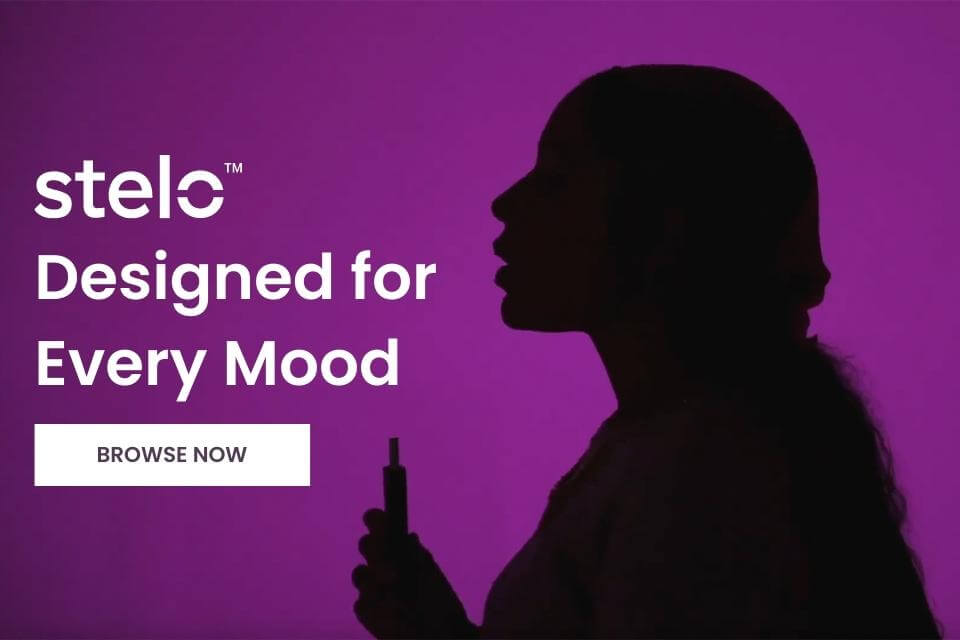In recent years, the landscape of the real estate market has witnessed a remarkable and somewhat unexpected trend: a significant surge in home values in states where cannabis has been legalized. This phenomenon, transcending mere speculation, is backed by a series of compelling studies and reports, including those from Real Estate Witch and Leafly. As more states across the U.S. have embraced either medical or recreational cannabis, the ripple effects on the real estate industry are becoming increasingly evident.
The correlation between the legalization of cannabis and the appreciating home values poses an intriguing narrative, one that intertwines economic growth, societal shifts, and legislative changes. This blog post delves into the heart of this trend, exploring the data-driven evidence that paints a clear picture of how legal cannabis is reshaping the real estate market. From cities bustling with dispensaries to states that have only recently opened their doors to medical marijuana, the impact is widespread and multifaceted.
Join us as we navigate through the layers of this green wave, examining not only the numbers that chart this rise but also the underlying factors that drive it, the response of the real estate industry, and the broader economic implications that extend far beyond property lines.
The Data Behind the Surge in Home Values

The burgeoning relationship between the legal cannabis industry and real estate market has materialized into a striking pattern: states that have embraced adult-use cannabis laws are witnessing a pronounced increase in home values compared to their counterparts. A study conducted by Real Estate Witch lays the groundwork for this observation, revealing that from 2014 to 2023, home values in states with legalized cannabis surged ahead by nearly $49,000 more than in states where cannabis remains illegal. This difference is not just a marginal uptick but a substantial leap, indicating a significant economic impact of legalization on local housing markets.
Further corroborating this trend, the study points out that the typical home in a state with legalized cannabis has appreciated by $185,075 since 2014, a stark contrast to the $136,092 increase in states without such legislation. Additionally, cities hosting adult-use dispensaries report a $67,359 higher increase in home values than cities in the same legal states but without dispensaries. This data not only underscores the value appreciation but also hints at the localized economic benefits brought about by the cannabis industry.
Medical cannabis, too, plays a role in this real estate appreciation. States with medical cannabis access have seen their home values rise by $29,289 more than states without such access since 2014. As of now, the typical home in a state with medical cannabis access is valued at 21% more than in a state without it, further solidifying the link between cannabis laws and real estate valuation.
Beyond the Numbers: What's Driving the Increase?
While the statistics paint a clear picture of rising home values in tandem with cannabis legalization, the reasons behind this increase are multifaceted and warrant a deeper exploration. Matt Brannon, a data analyst and author of the Real Estate Witch report, suggests that the correlation between less restrictive marijuana policies and increased economic development is strong. Legalizing cannabis doesn't just open the doors to dispensaries; it catalyzes a domino effect of job creation and economic activity across various support industries, including transportation, marketing, financial, and legal services.
The burgeoning cannabis industry, as reported by Leafly in partnership with Real Estate Witch, supports approximately 428,000 full-time jobs in the U.S., highlighting its significant role in job market expansion. These new jobs and development ventures contribute to a robust economic ecosystem, thereby boosting local economies and, by extension, the real estate market.
The impact of recreational cannabis legalization has been particularly noteworthy. In states where recreational cannabis is legal, the average home value has risen substantially more than in states where it remains illegal. This appreciation extends beyond the purchase of cannabis products and into broader economic realms.
However, it's crucial to note that while legalization and home value appreciation are correlated, experts like Brad Poulos, a cannabis expert and lecturer at Toronto Metropolitan University, urge a nuanced interpretation. He suggests that other factors, such as regional characteristics and cultural or geographical desirability, might also contribute to these rising values. In essence, the states legalizing recreational cannabis could inherently possess attributes that drive real estate demand, with legalization being one of many factors influencing this upward trend.
The Impact of Medical Marijuana on Real Estate

While the spotlight often shines on the effects of recreational cannabis legalization, the influence of medical marijuana on real estate markets is equally noteworthy. States that have implemented medical cannabis programs have seen a tangible increase in property values compared to those that have not. According to recent studies, these states experienced an average home value rise of $166,609 since 2014, outpacing the $137,320 increase observed in states without medical cannabis. This disparity highlights the broader economic influence of cannabis beyond recreational use.
Medical marijuana legalization represents a more moderated approach to cannabis reform, often serving as a preliminary step before full recreational legalization. These programs typically involve a doctor's prescription and a state-issued permit or license, creating a controlled environment for cannabis sales and supply. The more regulated nature of medical cannabis states, while less extensive than full recreational legalization, still contributes to significant economic benefits, as evidenced by the rise in home values.
In 2024, the average home in states with medical cannabis access stands at a value 21% higher than in states without any form of legal cannabis. This difference underscores the fact that even limited legalization, such as medical marijuana programs, can have substantial effects on local real estate markets.
The Localized Effect of Dispensaries on Property Values
The presence of dispensaries in legal cannabis states has a more pronounced effect on local real estate markets than might be expected. The Real Estate Witch study found that in states where cannabis is legal, cities with active recreational dispensaries experienced a more substantial increase in home values compared to cities without dispensaries. Specifically, homes in cities with dispensaries saw an average increase of $168,292 since 2014, while those in cities without dispensaries saw a rise of just $100,933.
This data challenges the notion held by some critics that dispensaries could negatively impact neighborhood property values. Contrary to the belief that dispensaries might attract crime or devalue properties, studies, including one published in the Annals of Regional Science, have found no significant impact on local crime rates in neighborhoods with dispensaries. In fact, the presence of dispensaries appears to contribute positively to local economies and real estate markets, indicating a broader acceptance and integration of the cannabis industry within local communities.
Broader Economic Implications

The correlation between cannabis legalization and increased home values extends beyond the real estate market, hinting at broader economic implications. Legal cannabis markets contribute to job creation and economic development, factors that can attract new residents and stimulate local economies. For instance, the cannabis industry, as noted by Leafly, supports a significant number of full-time jobs, which can lead to increased spending power and demand for housing in these areas.
Further, the presence of a legal cannabis market might influence migration patterns, with individuals and families considering legalization as one factor in their decision to move to a particular state. This shift could contribute to increased demand for housing in states with more progressive cannabis policies. Additionally, the growth of the cannabis industry can spur ancillary businesses and services, creating a ripple effect that benefits the local economy more broadly.
Real estate trends in states with legal cannabis also reflect changing societal attitudes and preferences. The increasing acceptance of cannabis use, both medically and recreationally, signals a shift in cultural norms that can influence various sectors, including real estate. As the cannabis industry continues to evolve, its impact on local economies and real estate markets is likely to expand, paving the way for new opportunities and challenges in these areas.
Conclusion
The intertwining of cannabis legalization and the real estate market presents a fascinating case study in how legislative changes can ripple through the economy, affecting sectors as foundational as housing. The data from the past decade clearly shows that states with legalized cannabis, both recreational and medical, have seen a notable increase in home values compared to states where it remains illegal. This trend isn't confined to the mere presence of cannabis legalization; it is significantly amplified in areas with active dispensaries, debunking some long-held misconceptions about the impact of the cannabis industry on local communities.
As we navigate this evolving landscape, it's essential to recognize that the correlation between cannabis legalization and real estate values is part of a larger economic and societal shift. The cannabis industry is not only reshaping norms and laws but is also becoming a significant economic driver, contributing to job creation, attracting investments, and stimulating local economies.
The green wave of cannabis legalization is more than a cultural shift; it's a transformative economic force with the power to reshape local economies, influence migration patterns, and redefine real estate markets. As we step into the future, the intersection of cannabis and real estate is poised to offer a realm of new opportunities and insights, further demonstrating the far-reaching impact of this once-controversial plant.
E1011 Labs: Embracing the Green Wave of Real Estate
As the cannabis industry continues to blossom, the real estate market is reaping significant benefits, with states that have legalized cannabis seeing substantial increases in home values. This trend aligns perfectly with E1011 Labs' mission of enhancing wellness and lifestyle through our innovative cannabis consumption products.
The E1011 Labs Perspective on Real Estate Growth
E1011 Labs recognizes the impact of cannabis legalization on real estate. With our focus on cannabis and wellness, we see this as an opportunity to contribute to the growing cannabis-friendly communities.
Cannabis and Community Development
E1011 Labs products, like the stelo™ series, support a lifestyle that aligns with the growth and development seen in cannabis-legal states. Our products are designed for responsible adult use, contributing to a positive community image that resonates with the growth in real estate value.
The Role of Dispensaries in Real Estate
As dispensaries become a cornerstone in cannabis-legal states, E1011 Labs products serve as a complementary offering for a refined cannabis experience. We support the idea that dispensaries not only contribute to the economy but also to the social fabric of the community.
Conclusion:
E1011 Labs' approach to cannabis consumption not only aligns with the rising trends in the real estate market due to legalization but also contributes positively to the evolving community standards. Our commitment to quality and responsible use places us at the forefront of this green wave, contributing to the overall enhancement of lifestyle and wellness in cannabis-friendly communities.







